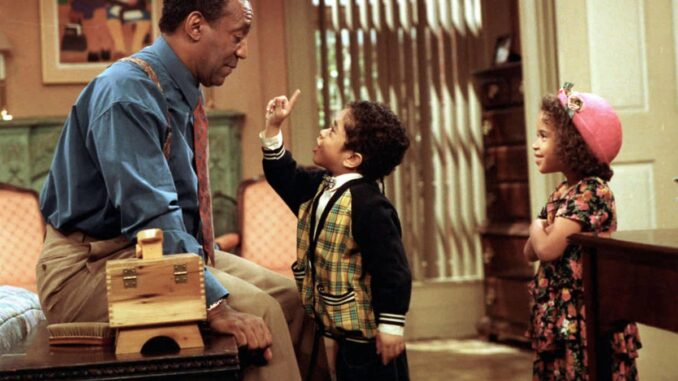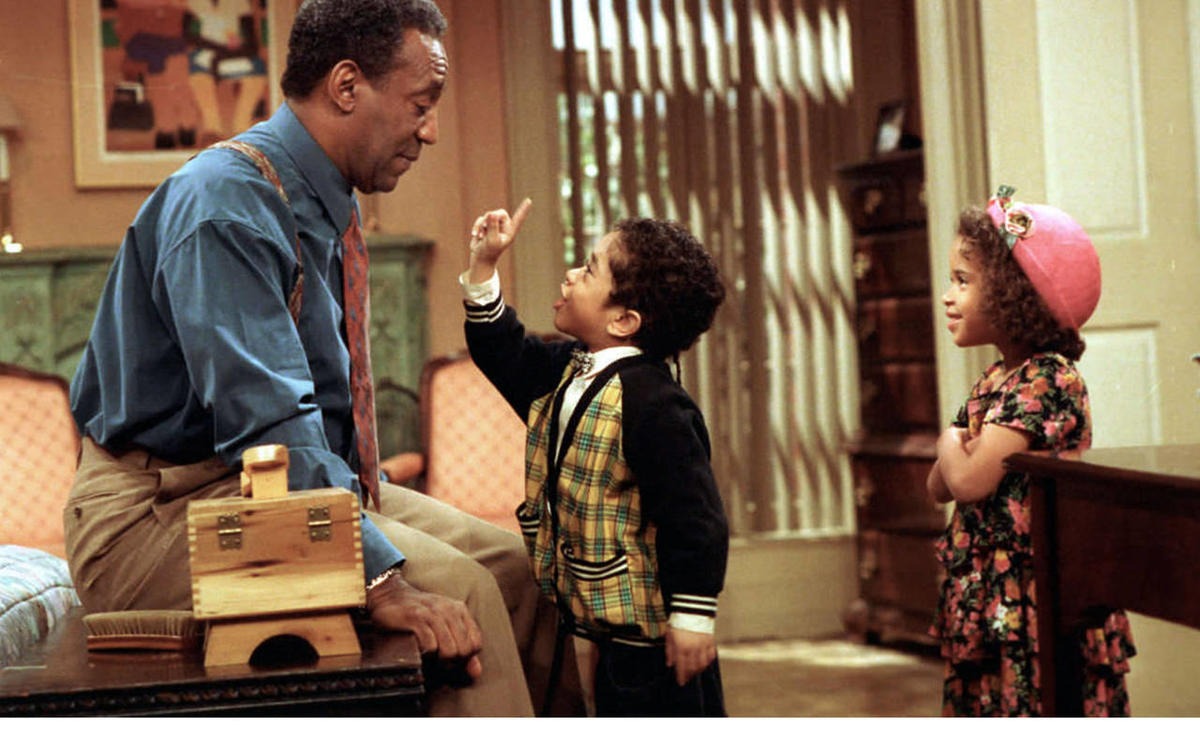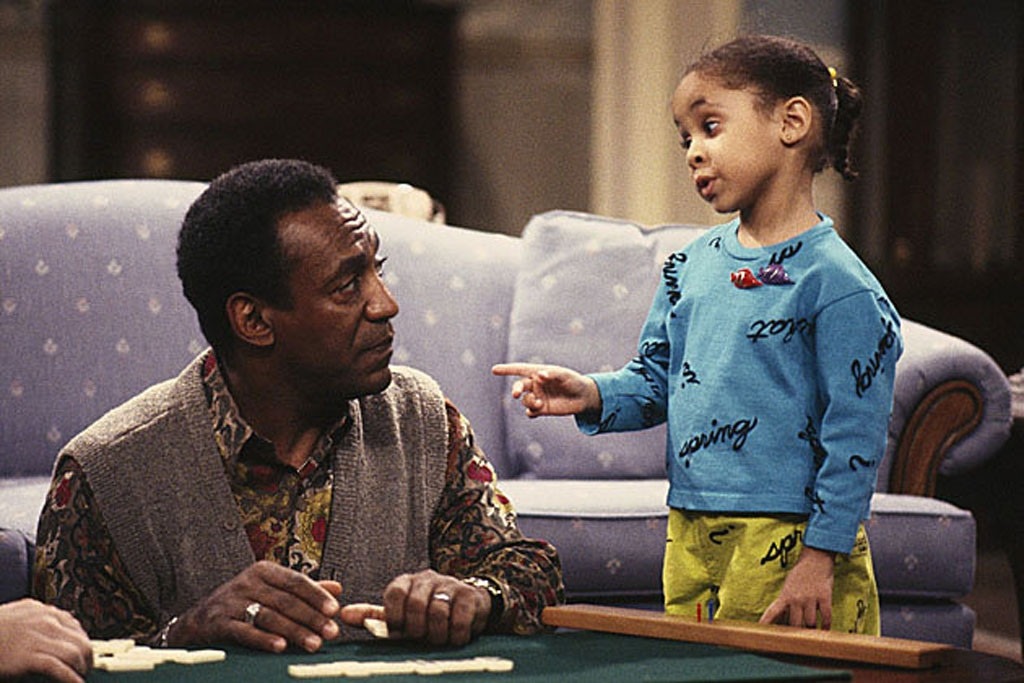
No one expected “The Cosby Show” to change the world. If anything, NBC executives hoped the show might survive by riding the coattails of its namesake — the comedian Bill Cosby, who based much of the sitcom on extracts from his highly popular stand-up act and real-life interactions with his own family.
NBC’s modest expectations were not born of nothing. The early 1980s were dominated by glitzy prime-time soap operas — “Dallas,” “Dynasty” and the like. “At the time, there wasn’t a single sitcom in the Nielsen top twenty, and many in the TV industry had declared the format ‘dead,’” writes Mark Whitaker, the author of “Cosby: His Life and Times,” for Time. “The Cosby Show” flipped the equation.
TV Guide describes it as television’s “biggest hit in the 1980s,” which “almost single-handedly revived the sitcom genre.” What’s more, it revived the sitcom on new terms. “The Cosby Show” is often credited for breaking new ground in the media visibility of African-Americans, laying track for later shows with predominantly black casts: “The Fresh Prince of Bel-Air,” (1990-96) “Family Matters” (1989-98) and the progressively minded campus-comedy spinoff “A Different World” (1987-93). Though some might say the show merely picked up where “The Jeffersons” (1975-85) and “Good Times” (1974-79) left off, “The Cosby Show” remains the most-watched show featuring a predominantly black cast in the history of American TV. For five of the eight years it ran, it was the most-watched show in America — period — beloved by audiences of all colors and walks of life.
Even in 2014, 30 years since the pilot first aired, “The Cosby Show” resonates with a timeless relevance. It was a show about African-Americans with broad appeal — that much is undeniable — but even more significant is “the failure of any show in the three decades since to come close to matching the impact that ‘The Cosby Show’ had on how African-Americans are perceived and how they perceive themselves,” Mr. Whitaker writes.

“‘The Cosby Show’ has been described by some as a show which redefined Blackness, presenting a nuclear construct that, until its 1984 debut, was not even considered a possibility,” according to an editorial for News One, “But Black America knew better.” For a number of African-American viewers and critics, “The Cosby Show” did not “redefine Blackness” in so much that it showcased another aspect of black American life: “a Black narrative that focused on education instead of poverty. A Black narrative that focused on art instead of gang violence. A Black narrative that focused on love instead of pathology.” This is true. Though “The Jeffersons” focused on an upper-class African-American family, their wealth and quality of life was intentionally novel — the windfall with which they “moved on up to the Upper East Side” being the literal basis for the show.
That said, the prevailing stability of the Huxtable household was not always a universally appreciated motif. Writing for The Philadelphia Inquirer, Mark Anthony Neal, a professor of African-American studies at Duke University, says “the show’s pacing and deliberate avoidance of the world outside of the Huxtable household rang hollow.” Dr. Neal recalls, as a college student in the mid-1980s, “being politicized by the South African divestment movement, the two presidential campaigns of Jesse Jackson (whom Cosby publicly supported) and racial attacks in Howard Beach and Bensonhurst.” It was a turbulent time in black America, and he did not see these tensions mirrored in what was marketed as a revolutionarily reflective show for African-Americans.
Kelefa Sanneh of The New Yorker agrees. “The Huxtables didn’t have much to say about black poverty, and some worried that their prominence somehow made black poverty easier to overlook,” he writes. But “one reason the characters didn’t often argue about race was that all the show’s major characters were African-American.” This, Mr. Sanneh believes, may have “gestured at the ideal of black self-sufficiency — the notion that, with enough time and effort, African-Americans could build their own communities, fix their own problems.” This is a rhetorical angle Dr. Cosby himself has become both lauded and criticized for promoting in the years since “The Cosby Show” wrapped. “Depending on the emphasis, this can seem like either a very conservative dream or a very radical one, and both interpretations help explain why ‘The Cosby Show’ made some racial liberals uncomfortable.”
“To be clear, no one could ever accuse the Huxtables of being a black family in whiteface,” Dr. Neal concedes. “But we also understood that there would be no Malcolm X speeches between segments. Cosby navigated race much like the first black president, Barack Obama does — letting the images of black respectability do the heavy lifting.”
Though it’s worth noting that “The Cosby Show” had its radical moments, albeit quiet ones. Theo Huxtable struggled with dyslexia, which he eventually overcame, devoting himself professionally to helping inner-city youth work through similar disabilities. A memorable early episode involved Denise wrestling with the knowledge of a schoolmate’s teenage pregnancy. Lisa Bonet, reprising the role of Denise, would later star in the first season of “A Different World,” which made a more concerted effort to address racial politics and systemic inequality.
The least quiet of the Huxtables’ radicalisms came in the form of the superlative Clair Huxtable. In as many ways as she embodied the definitive sitcom mother, she shattered the mold in far more — championing an outspoken feminism that cannot be denied.
In the 1980s, the concept of a liberated woman was hardly new to Americans sitcoms and the points at which they intersected with and influenced public discourse. “‘The Mary Tyler Moore Show’ made history in 1970 by focusing on a liberated single woman who did not seek — and during the show’s seven-season run, did not find — a husband,” explains Slate’s Jason Bailey. “Norman Lear’s ‘Maude’ concerned an outspoken feminist and political activist, and his ‘All in the Family’ gave us an increasingly feminist Gloria Stivic (Sally Struthers) who, along with husband Mike (Rob Reiner), served as a liberal foil to the reactionary Archie Bunker.”
But Clair was different.
“It wasn’t just that Clair Huxtable was a strong, liberated woman with a career,” Mr. Bailey writes. “It was that she had a husband and family who supported and valued her endeavors. Cliff wasn’t just a passive husband who tolerated his wife’s independence: While Clair went from Brooklyn to her high-powered Manhattan law firm every day, he worked from home — as an OB/GYN, no less — equally responsible for such ‘traditionally’ female responsibilities as cooking and child care. He sees their division of labors as no big deal; if anything, the Huxtable arrangement looks like simple common sense.”

“My dream started by seeing Clair Huxtable on ‘The Cosby Show,’” the transgender activist Janet Mock told Out magazine. “I wanted to be beautiful, be successful and maybe have a great family and a brownstone in Brooklyn.”
And don’t mistake Clair for yet another iteration of the “angry black woman” stereotype. “Clair Huxtable is an incredible character because she gets angry,” writes Jezebel’s Kara Brown. “She is a successful lawyer and a caring mother and devoted wife. She is sweet and measured but is also quick to put you in your place if you say or do something stupid. (And she could even do it in Spanish.) Clair Huxtable accepts foolishness from absolutely nobody, but she also picks her battles.”
So, as we toast “The Cosby Show” on its 30th anniversary, we look forward to myriad ways its characters — far from “trite” — will continue to re-manifest: the Clair Huxtable-inspired Olivia Popes and Annalise Keatings of the Shonda Rhimes canon; next week’s premiere of the much-anticipated “Black-ish” on ABC, a show that aims to blend the humor and aspiration of “The Cosby Show” with candid discussions of race, identity and wealth. Three decades on, there’s no shortage of ground to break.
Yet, as groundbreaking as it irrefutably was, “The Cosby Show” legitimized a very simple idea. “The idea that you could launch a show where a family just happened to be black,” as Jaime Weinman of Maclean’s puts it. “And the premise didn’t suggest there was something unusual or unconventional about this.” This usualness and conventionality sparked discussion and disagreement, sure — all great shows do. But if the specialness of “The Cosby Show” can be pinpointed, it was a remarkable show about the power of the unremarkable.